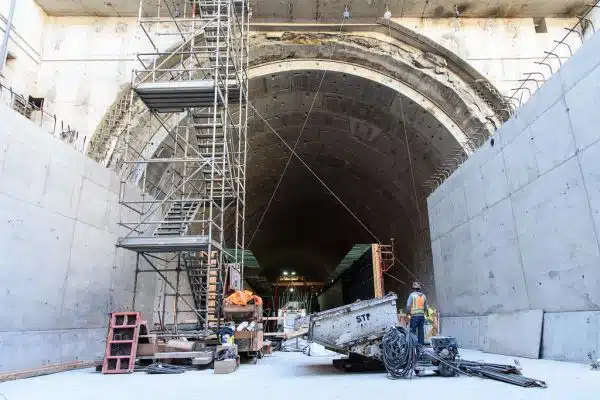As a construction project manager, one of the most important decisions you will make is hiring a contractor to build a deck. A well-built deck can add value to your property and provide an enjoyable space for outdoor activities. However, hiring the wrong contractor can result in costly mistakes and an unsatisfactory finished product. Therefore, it is crucial that you take the necessary steps to ensure that you hire a reputable and qualified contractor.
The process of hiring a contractor may seem daunting, but with careful planning and research, you can find the right professional for your project. In this article, we will guide you through the steps of hiring a contractor to build a deck. From defining your project goals to evaluating potential contractors, we will provide practical advice that will help you make informed decisions throughout the hiring process. With our guidance, you can confidently move forward with your deck construction project and achieve the results you desire.
Defining Your Project Goals
Determining design and choosing materials are crucial steps in the process of hiring a contractor to build a deck. Before beginning any construction project, it is important to have a clear understanding of what you want to achieve. Defining your project goals will help set expectations and ensure that the end result meets your needs and preferences.
To determine the design of your deck, consider its purpose and how you plan to use it. Are you looking for a space for outdoor dining or entertaining guests? Do you want a private retreat for relaxation or sunbathing? The intended use of your deck will influence its size, shape, and layout. Additionally, take into account the style of your home and the surrounding landscape when selecting a design.
Choosing materials is another crucial aspect of defining your project goals. There are numerous options available, each with their own advantages and disadvantages. Some popular choices include pressure-treated wood, composite decking, aluminum, and PVC. Consider factors such as durability, maintenance requirements, cost, and aesthetics when deciding on which materials to use for your deck.
With a clear understanding of the desired design and materials for your deck in mind, you can begin establishing your budget for the project. By carefully considering these initial aspects of the project before seeking out contractors, you’ll be better equipped to communicate your needs clearly with potential hirees.
Establishing Your Budget
After establishing your project goals, the next crucial step in hiring a contractor to build your deck is to establish your budget. Knowing how much you are willing and able to spend will help guide your decisions when it comes to selecting materials and negotiating costs with potential contractors.
When comparing materials, keep in mind that the cost will vary depending on the type of material used. For example, pressure-treated wood is a popular and affordable option for decking. However, if you want something more durable and low-maintenance, composite or PVC decking may be a better choice but at a higher cost. It’s important to weigh the pros and cons of each material against your budget and desired outcome.
Negotiating costs with potential contractors can be intimidating for some homeowners. Keep in mind that it’s okay to ask questions and negotiate for a fair price. Be sure to get multiple quotes from different contractors so that you can compare prices and services offered. Remember that the cheapest quote may not always be the best option, as quality should also be considered when making your final decision.
- Conduct thorough research on the materials available for building a deck
- Create a spreadsheet or document outlining potential costs associated with each material
- Determine which materials fit within your budget
- Obtain multiple quotes from different contractors
- Negotiate pricing based on both cost and quality factors
In researching local building codes and permits, it’s important to ensure that all necessary permissions are obtained before beginning construction on your deck. Failure to do so could result in fines or legal action against you as the homeowner. Check with your local government offices or obtain assistance from professionals in obtaining permits needed for construction. Once all necessary permits have been obtained, you can move forward with confidence knowing that your project is compliant with regulations in your area.
Researching Local Building Codes And Permits
Researching local building codes and permits is a crucial step in any construction project, including building a deck. Before hiring a contractor to start work, it is essential to research permit requirements and navigate local building codes. Failure to do so can lead to legal trouble, fines, and even the demolition of the structure.
To begin researching permit requirements, start by contacting the local government office responsible for building permits. They will provide information on what permits are needed for your project, as well as any other regulations that must be followed. It is important to note that different areas have different rules and regulations when it comes to deck construction. Therefore, it is essential to ensure that you have all the necessary information before beginning work.
Navigating local building codes can be challenging without experience or knowledge in construction. It is wise to hire a professional contractor who understands these codes and can navigate them with ease. A professional contractor will ensure that your deck meets all necessary regulations and passes all inspections before completion. By hiring a competent contractor, you can rest assured that your deck construction will be completed safely, legally, and efficiently.
| Permit Requirements | Local Building Codes |
|---|---|
| Determine what permits are required for deck construction | Ensure deck meets minimum size requirements |
| Obtain necessary permits before starting work | Follow setback rules from property lines |
| Follow specific regulations for railings and stairs | Use approved materials for framing and decking |
Researching permit requirements and navigating local building codes may seem overwhelming at first glance; however, taking these steps will save time, money, and headaches in the long run. By following these regulations, your deck will not only meet safety standards but also enhance the value of your property. Once you have obtained all necessary permits and understand relevant building codes, the next step is gathering recommendations from friends and family who have had similar projects completed successfully.
Gathering Recommendations From Friends And Family
As you take the first steps towards hiring a contractor to build your dream deck, it’s important to remember that this project is not just about constructing a structure. You’re building memories, moments and experiences that will last a lifetime. To ensure that everything goes smoothly, getting referrals from friends and family can help you make an informed decision.
Getting referrals is crucial in building trust with potential contractors. Word-of-mouth recommendations from people you know and trust can give you valuable insight into the contractors’ experience, work quality, communication skills and professionalism. When asking for referrals, be specific about what you’re looking for in a contractor and what your budget is. This information will help your friends or family provide more targeted recommendations.
Once you have compiled a list of referrals, take the time to research each contractor online. Check their website for details on their services, past projects and customer testimonials. Additionally, read online reviews and ratings from previous clients to get an idea of their reputation in the industry. By combining personal recommendations with online research, you can create a shortlist of potential contractors who meet your requirements and are worthy of consideration for your upcoming deck project.
Checking Online Reviews And Ratings
When searching for a contractor to build a deck, it is essential to check the online reviews and ratings of potential candidates. Authenticity is crucial in determining the reliability of these reviews as they can significantly impact your decision to hire a particular contractor. It is worth checking not only on the rating but also on the number of reviews left by previous clients.
There are potential risks that come with relying solely on online ratings and reviews. Fake reviews are becoming more prevalent, and it can be challenging to distinguish them from genuine ones. Fraudulent behavior by contractors or their competitors may lead to positive or negative reviews being posted without any basis in reality. Therefore, it is essential to use caution when relying on these sources.
To ensure that you receive accurate information about a contractor’s performance and reputation, consider the following tips:
- Check multiple review sites
- Look for common themes in the feedback provided
- Pay attention to details like project timelines and communication with clients
- Consider the overall tone of the comments left by previous customers
- Remember that no one is perfect; even excellent contractors may have some negative feedback
By taking into account these factors, you will be well equipped with enough knowledge before making an informed decision about hiring a deck builder.
Moving forward, requesting quotes from multiple contractors should be your next step.
Requesting Quotes From Multiple Contractors
After conducting extensive research and reading online reviews and ratings, it’s time to move on to the next step in hiring a contractor for your deck project. This step involves requesting quotes from multiple contractors to compare and negotiate the terms of their services.
When comparing estimates, it’s important to ensure that each contractor is providing an itemized breakdown of costs, including labor, materials, permits, and any other expenses associated with building your deck. This will help you make an informed decision when selecting a contractor based on cost-effectiveness and transparency.
Once you have received estimates from multiple contractors, it’s time to negotiate the terms of their services. Don’t be afraid to ask questions or request revisions to the proposal if necessary. A good contractor will be open to discussing options that fit within your budget while still meeting your needs for quality craftsmanship and timely completion. By comparing estimates and negotiating terms with potential contractors, you can ensure that you are choosing the right one for your deck project.
Moving forward, it’s important not to overlook the critical step of verifying licenses and insurance coverage before finalizing a contract with any potential contractors.
Verifying Licenses And Insurance Coverage
Verifying credentials is an essential step in hiring a contractor to build your deck. This process ensures that the contractor has the necessary licenses and insurance required by law to perform the work safely and efficiently. It is crucial to verify these credentials before signing any contract or making any payments.
When verifying licenses, make sure to check with your state’s licensing board or department of consumer affairs. These agencies maintain records of licensed contractors and can provide information on any disciplinary actions taken against them. You may also want to ask the contractor for their license number so that you can verify it independently.
Insurance requirements vary by state, but most contractors should have liability insurance and worker’s compensation insurance. Liability insurance protects you in case of property damage or injuries caused by the contractor or their employees, while worker’s compensation insurance covers medical expenses and lost wages for workers injured on the job. It is important to ask for proof of insurance and verify that it is current before hiring a contractor.
Transition: Once you have verified a contractor’s credentials, it is time to review their portfolio and past projects to ensure they have experience building decks similar to yours.
Reviewing Contractor Portfolios And Past Projects
After verifying the licenses and insurance coverage of potential contractors, the next step is to review their portfolios and past projects. This will give you an idea of their skills, experience, and design style. It’s important to find a contractor whose work aligns with your vision for the deck.
Design considerations should be at the top of your mind when reviewing portfolios. Look for a contractor who has experience with decks similar in size, shape, and style to what you have in mind. It’s also important to consider material options – some contractors may specialize in one type of material over another. Reviewing portfolios can help you get a sense of what materials each contractor has experience working with.
When reviewing past projects, pay attention to details like craftsmanship, attention to detail, and how well the deck has held up over time. You can also ask for references and contact previous clients to get an even better sense of the contractor’s work ethic and communication style.
- Consider design similarities between past projects and your desired deck
- Assess experience with different material options
- Examine craftsmanship and attention to detail in past projects
- Contact previous clients for further insights into the contractor’s work ethic
In summary, reviewing a potential contractor’s portfolio and past projects is crucial in finding someone who aligns with your design vision while also demonstrating skill and expertise. By paying close attention to design considerations, material options, craftsmanship, and previous client experiences through contacting references, you can ensure that you are hiring someone who will deliver high-quality results on your deck project.
Asking For References And Contacting Previous Clients
Checking credentials of a contractor is just one part of the process in hiring someone to build your deck. Another important step is to ask for references and contact previous clients. This will allow you to get an idea of the quality of work that the contractor provides, as well as their level of professionalism and communication skills.
When contacting previous clients, it’s important to ask them about their experience working with the contractor. You can ask questions such as whether they were satisfied with the work that was done, how long it took for the project to be completed, and if there were any issues or concerns that arose during the process. This will give you a good sense of what to expect when working with this particular contractor.
After checking credentials and conducting interviews with potential contractors, negotiating terms and signing a contract is the next step in the process. It’s important to make sure that all terms are clearly outlined in writing before any work begins. This includes details such as payment schedules, start and end dates for the project, materials used, and any warranties or guarantees provided by the contractor. By having everything in writing beforehand, both parties can avoid misunderstandings or disputes down the line.
Moving forward from checking references and contacting previous clients brings us to understanding the contract and payment terms. It’s important to carefully read through all aspects of the contract before signing on dotted lines. Understanding payment terms is crucial; ensure you know when payments are due, how much each payment will be, and what recourse you have if payments are missed or delayed.
Understanding The Contract And Payment Terms
- It is important to have a clear understanding of the contractor’s fees before proceeding with any construction project.
- It is essential to examine the payment schedule outlined in the contract and ensure that all costs are stated clearly.
- Before signing the contract, it is important to thoroughly review all contract terms to ensure a successful construction project.
- All fees associated with the construction project should be outlined in the contract including any additional fees for materials and labor.
- It is important to establish a payment schedule that is agreeable to both the contractor and the project manager.
- The project manager should ensure that all payment terms are clearly defined in the contract to avoid any misunderstandings or disputes.
Knowing The Contractor’s Fees
When hiring a contractor to build a deck, it is important to know their fees before agreeing to any contract or payment terms. Negotiating fees with a contractor can be tricky, as you want to ensure that you are getting a fair price for the work that needs to be done without going over your budget. As a construction project manager, it is crucial to have strong budget management skills and be able to negotiate effectively with contractors.
Before negotiating fees with a contractor, it is important to have a clear understanding of what work needs to be done and what materials will be required. This will give you an idea of what the project should cost and help you set a realistic budget for the job. Once you have this information, you can start negotiating with potential contractors. Keep in mind that the lowest bid may not always be the best option. It’s important to weigh the cost against the quality of work and reputation of the contractor before making any decisions.
When negotiating fees with a contractor, it’s important to be clear about your expectations for the project and make sure they understand your budget limitations. A good contractor will work with you to find ways to reduce costs while still delivering quality workmanship. Remember that communication is key throughout the project, so make sure that both parties are on the same page when it comes to fees and payment terms. With careful negotiation and effective budget management, you can find a reputable contractor who will build your dream deck within your budget constraints.
Understanding The Payment Schedule
As a construction project manager, understanding the contract and payment terms is crucial. Along with negotiating fees, it’s important to have a clear understanding of the payment schedule. Payment negotiations are an important part of any construction project, as they can affect the quality of work and the overall budget.
When working with contractors, it’s essential to discuss payment options before starting any work. A good contractor will be willing to work with you to find a payment schedule that works for both parties. Some contractors may require a down payment before beginning work, while others may prefer installment payments throughout the project. Understanding these options and discussing them with your contractor will help ensure that you are on the same page when it comes to payment.
Another important aspect of understanding the payment schedule is knowing when payments are due. This information should be included in the contract and agreed upon by both parties before starting any work. Having a clear timeline for payments will help keep everyone accountable and prevent any misunderstandings or delays in the project. By understanding and discussing payment options and timelines with your contractor, you can ensure that your construction project runs smoothly from start to finish.
Examining The Contract Terms
As a construction project manager, it’s crucial to have a clear understanding of the contract and payment terms. Negotiating price is just one aspect of the process, but examining the contract terms is equally important. Legal considerations play a significant role in any construction project, and reviewing the contract thoroughly can help avoid potential legal issues down the line.
When examining the contract terms, it’s essential to pay attention to details such as scope of work, timelines, and change orders. The scope of work should be clearly defined in the contract to avoid any misunderstandings about what is included in the project. Timelines for completion should also be outlined in detail to ensure that both parties are aware of deadlines and can plan accordingly. Change orders should also be addressed to prevent any unexpected costs or changes to the project scope.
Additionally, understanding legal considerations such as liability and insurance requirements is crucial when reviewing the contract. The contractor should have proper insurance coverage for their work, including liability insurance and workers’ compensation insurance. The contract should also include provisions for resolving disputes or breach of contract issues that may arise during the project. By examining these legal considerations and incorporating them into the contract terms, both parties can protect themselves from potential legal issues.
In conclusion, examining the contract terms is an important part of understanding payment and negotiation options in construction projects. By paying attention to details such as scope of work, timelines, change orders, liability, and insurance requirements when reviewing the contract, both parties can protect themselves from potential legal issues down the line.
Establishing A Timeline And Project Schedule
Project management is an essential aspect of any construction project, including building a deck. After selecting a contractor, the next step is to establish a timeline and project schedule. This process requires careful planning and negotiation between the homeowner and contractor.
Firstly, consider the scope of work required for the project. A detailed list of tasks should be created, outlining each step in the construction process. This will ensure that both parties have a clear understanding of what needs to be accomplished and when. Secondly, negotiate a realistic timeline for completion. Keep in mind that unexpected delays such as inclement weather or material shortages may occur, so it’s important to build in some flexibility into the schedule.
To evoke an emotional response from homeowners, consider these three key points:
- A well-planned timeline will minimize stress and anxiety during the construction process.
- Clear communication between homeowner and contractor can prevent misunderstandings and delays.
- A realistic project schedule allows for quality workmanship without rushing or cutting corners.
Overall, effective project management is crucial when building a deck with a contractor. Negotiating a timeline that works for both parties can help ensure that expectations are met and the final product meets all requirements. The next section will cover communicating effectively with your contractor to ensure that everything runs smoothly throughout the duration of the project.
Communicating Effectively With Your Contractor
Effective communication is key to a successful contractor-client relationship. It is important to establish clear lines of communication from the beginning of the project, such as how often you will meet or communicate with each other, and what method of communication you will use. This can include email, phone calls, or text messages. Establishing these guidelines at the outset and consistently following them throughout the project helps to build trust and good rapport between both parties.
Building rapport with your contractor is also crucial to a positive working relationship. It can be helpful to get to know your contractor on a personal level and show interest in their work and experience. This can create an atmosphere of mutual respect and trust that will benefit both parties throughout the project. Additionally, being open to their suggestions and ideas helps to foster a collaborative environment where everyone’s input is valued.
Effective communication and building rapport are essential components of any successful construction project. By establishing clear guidelines for communication and building strong relationships with your contractor, you can ensure that your deck-building project runs smoothly from start to finish. In the next section, we will discuss how monitoring progress and quality control are important steps in ensuring that your deck is built according to your specifications.
Monitoring Progress And Quality Control
While it is important to hire a skilled contractor for the construction of your deck, it is equally crucial to monitor the progress and quality of work. This will ensure that the project is completed within the stipulated timeline and budget, while meeting all necessary requirements. Site visits are an essential tool in monitoring progress as they allow you to observe first-hand how work is being carried out.
Documentation review is another critical aspect of monitoring progress and quality control. It involves reviewing documentation such as contracts, invoices, change orders, and permits to ensure that everything is in order. This helps to prevent misunderstandings or disputes arising from any discrepancies that may arise during the construction process. Documentation review also enables you to keep track of changes made to the original plans and specifications.
Quality assurance is paramount when building a deck. Regular site visits and documentation reviews can help identify potential issues before they become major problems. If any disputes do arise during the construction process, it is vital to have a dispute resolution mechanism in place. This could involve either mediation or arbitration, depending on what was agreed upon in the contract between you and your contractor. By ensuring high-quality workmanship throughout the project’s duration, you can be confident that your new deck will stand strong for many years to come.
Transitioning into handling unexpected issues and changes: While monitoring progress and quality control helps mitigate risks during deck construction, unexpected issues or changes can still occur. It’s important to have a plan in place for handling these situations so that your project stays on track without compromising quality or safety standards.
Handling Unexpected Issues And Changes
- When dealing with delays, it is important to identify the cause and develop a plan to manage the timeline of the project.
- Communication between the project manager, contractor and other stakeholders must be clear and consistent in order to ensure that changes are adequately addressed.
- It is crucial to have a contingency plan in place to handle any unexpected changes that may arise during the construction of a deck.
- Before hiring a contractor, it is important to review the terms of the agreement to ensure that any issues or changes can be addressed in a timely and cost-effective manner.
Dealing With Delays
Managing a construction project involves dealing with unexpected issues and changes, and delays are one of the most common challenges faced by contractors. The frustration of not being able to complete the project on time can be overwhelming for clients. As a project manager, it is crucial to manage expectations by communicating clearly and effectively with clients about potential delays. By doing so, you can avoid misunderstandings and maintain a positive relationship with your client.
Dealing with inclement weather is one of the primary causes of construction delays. Rain, snow, or extreme heat can make it impossible to work on an outdoor project like building a deck. As a contractor, you must have contingency plans in place to mitigate these risks. For instance, you could schedule the work during dry seasons or use alternative materials that are not affected by adverse weather conditions. Additionally, it is essential to keep your client informed about any weather-related delays and how they might affect the timeline of the project.
In conclusion, managing unexpected issues such as delays requires proper planning and communication skills from contractors. By managing expectations through clear communication with clients and having contingency plans in place for inclement weather, you can minimize the impact of unexpected events on your construction projects. Remember to always prioritize the needs of your client while ensuring that you deliver high-quality workmanship within budget and timelines set out at the beginning of the project.
Communicating Changes
As a construction project manager, it is essential to have effective communication skills when managing modifications or changes to the project. Clients may request changes that can affect the timeline, budget, or scope of work. Therefore, it is crucial to communicate with clients about any potential issues and provide them with options on how to proceed. Communication is key in ensuring that the client is satisfied with the final outcome of the project.
To communicate changes effectively, project managers should schedule regular meetings with clients to discuss any modifications or concerns they may have. During these meetings, it is essential to listen carefully to their needs and provide honest feedback about the impact of these changes on the project’s timeline and budget. It is also necessary to document all changes made during these meetings and update the project plan accordingly.
In addition, effective communication does not only apply when discussing modifications but also applies when communicating progress updates throughout the construction process. Regular progress updates help clients understand what has been accomplished so far and what still needs to be done. This information helps manage expectations and builds trust between contractors and clients. In conclusion, effective communication plays a critical role in managing unexpected issues such as modifications or changes in construction projects. By scheduling regular meetings, documenting all changes made during these meetings, and providing regular progress updates throughout the process, you can ensure that your clients are satisfied with the final outcome of their construction projects.
Ensuring Satisfaction And Final Inspection
Handling unexpected issues and changes during the deck construction process is a crucial aspect of ensuring project success. Nevertheless, it is equally important to ensure client satisfaction and perform a final inspection before closing out the job. As a construction project manager, it is our responsibility to oversee the entire project process and deliver high-quality results that meet or exceed client expectations.
To ensure client satisfaction, we must communicate regularly with them throughout the project timeline. This includes discussing any potential changes or concerns as they arise, and proactively addressing any issues that may arise on-site. Additionally, we should provide clear instruction for proper deck maintenance to prolong its lifespan and prevent unnecessary repairs.
In addition to ensuring client satisfaction, we must also consider warranty options for our workmanship and materials used during construction. Offering warranties can give clients peace of mind knowing that their investment is protected against any future damages or repairs. We should discuss these options with our clients early in the process so they can make informed decisions about which warranty best suits their needs.
Conclusion
As a construction project manager, it is essential to approach the hiring of a contractor to build a deck with careful consideration and attention to detail. The process requires a comprehensive understanding of your goals, budget, local building codes and permits, as well as an effective communication strategy with your contractor.
Imagine the construction project as a puzzle. Each piece represents an important aspect of the process, from defining your project goals to ensuring satisfaction and final inspection. Just like assembling a puzzle, every step must be taken deliberately and with precision. If one piece is missing or out of place, the entire puzzle becomes disjointed and incomplete.
Hiring a contractor for deck construction requires patience, diligence, and thoroughness. By following the steps outlined in this article and approaching the process with care and attention to detail like solving a puzzle; you can ensure that your deck will be built to meet your expectations while adhering to local regulations. Remember that communication is key throughout this process; clear communication between you and your contractor will lead to successful completion of your project on time within budget while meeting all requirements.
Image Credits
- “Building the double-deck roadway inside Bertha’s disassembly pit” by WSDOT (featured)



![How To Build A Detached Deck 3 Force Reconnaissance Detachment Deck Shoot [Image 4 of 4]](https://green-life.blog/wp-content/uploads/2023/05/RJo3tlizSGjq-150x150.jpg.webp)

















![Calculating How Much Stone Dust You Need 21 [Blog Post]Stone Dust © Oxfam Australia](https://green-life.blog/wp-content/uploads/2023/05/GdZVzgTqPhjq-150x150.jpg.webp)







